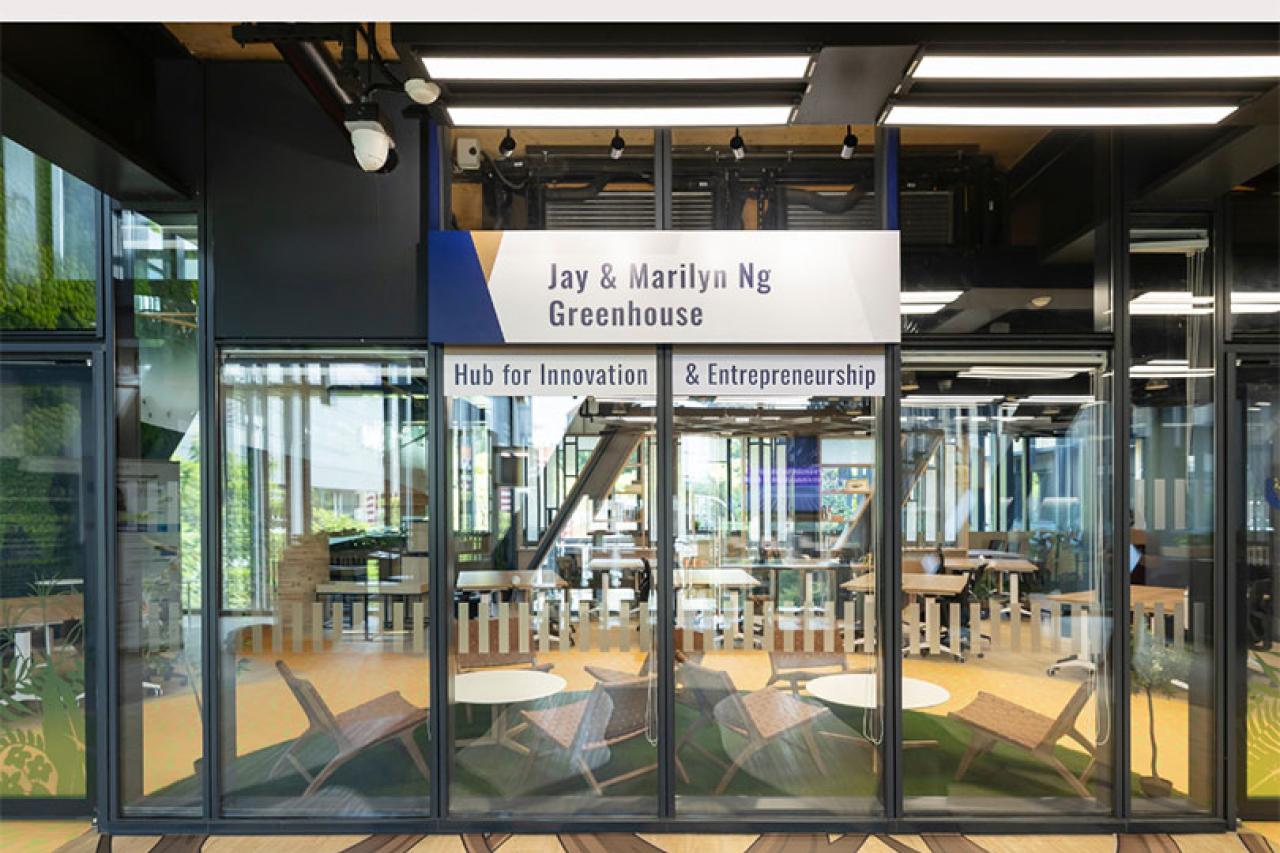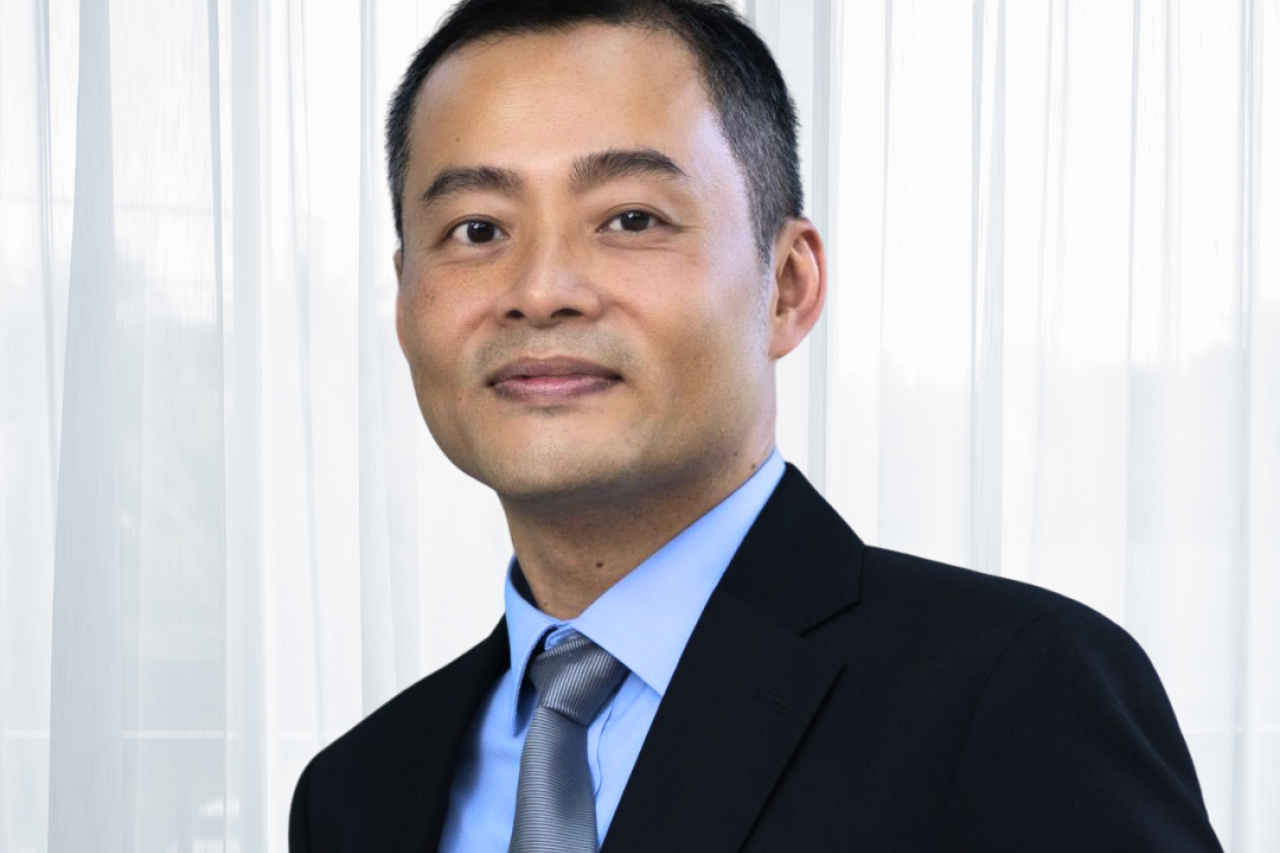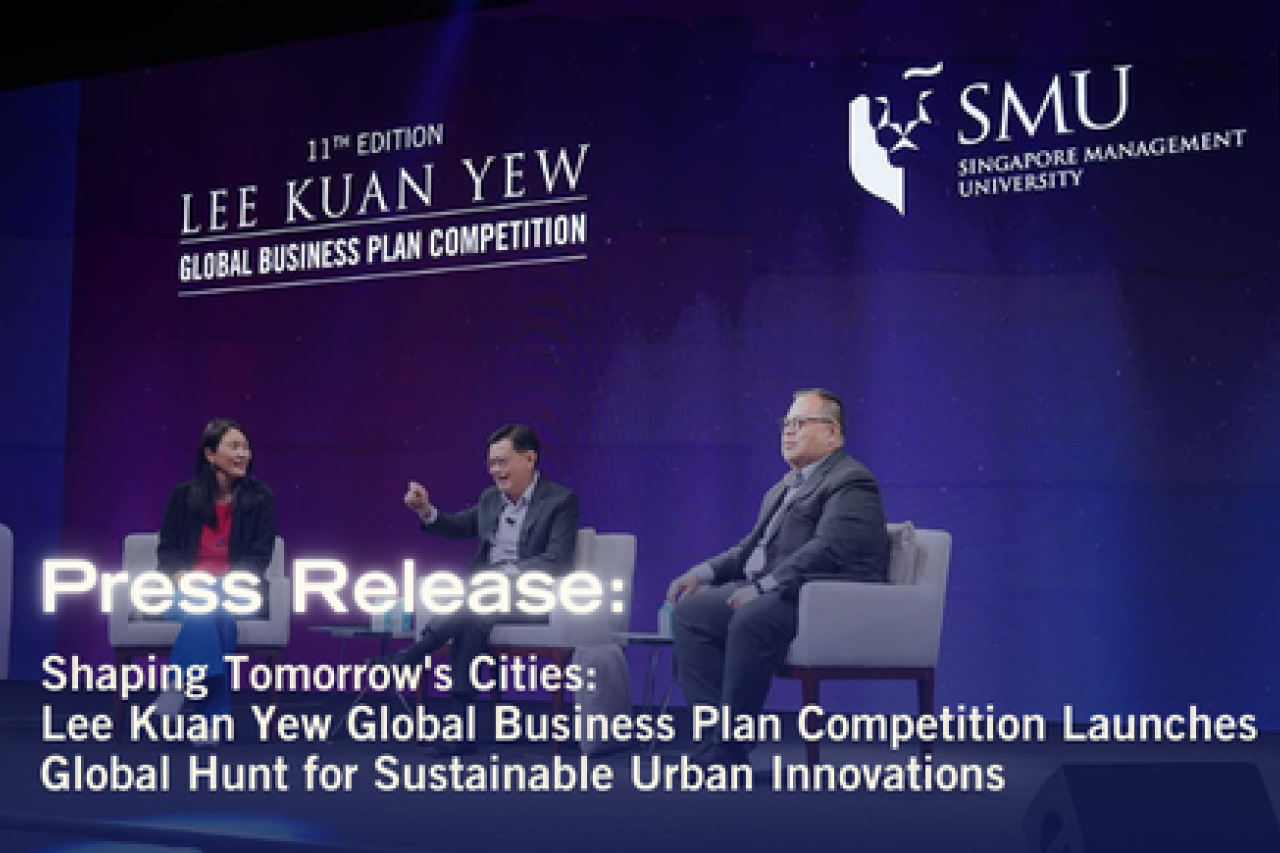To Succeed, Make Hard Choices
Friday Jan 15,2021 | IIE News
To Succeed, Make Hard Choices

By Jeff Tung, Founder, Chairman and Executive Director at Sheng Ye Capital Limited, shares his entrepreneurship journey in the world of supply chain and financial services.
What made you want to become an entrepreneur?
I have always wanted to become an entrepreneur—to build something from scratch has been my passion. My father is a successful entrepreneur, and the environment I grew up in has helped me develop my business acumen. I am fortunate to have studied at Singapore Management University, where I learned a lot about value creation and ‘being different’. The four years of my undergraduate life have had a lasting impact on me. I had the privilege of participating in several overseas internships and exchange programmes, which exposed me to international businesses and gave me the opportunity to learn from professors of different disciplines and industry leaders. I wanted to see if I could build my own business. We cannot choose the starting point of our life, but we can choose the paths we walk on and our desired destinations.
How did you get into the business of providing supply chain financial services to clients using financial technology?
When I graduated in 2013 with a major in finance, I moved to Hong Kong. This was also the year when the commercial factoring industry in China took off. I saw huge business potential for supply chain financing in China, with adjacent Hong Kong as the right financial hub to support it. There were a vast number of small and medium enterprises (SMEs) in China serving high quality customers, and yet their financing needs were underserved. Moreover, at that time, Internet businesses like Alibaba and Tencent were revolutionising consumption behaviour in China. I felt technology could similarly transform enterprises and how they were financed. China’s capital controls also meant that there were opportunities to meet the need for onshore borrowings with offshore financing.
I started learning about supply chain finance by setting up a trading company in Hong Kong to trade letters of credit. After eight months, I decided that I had to move to China to be closer to where the SMEs were, as well as to deepen my understanding of their needs and supply chains. I spent years travelling around China and meeting customers, friends and bankers to help me better understand the China market. I also considered setting up operations in Brunei. But my father said, “It’s just China or you have to get out of the family.” So I picked China!
Along the way, I received great support from my family and friends, especially my father who provided me the seed capital to launch the business, so that I could focus on expanding my network and exploring potential business opportunities in the early days. I met bankers in Shenzhen, who introduced me to their clients in Anhui, Beijing, and Shanghai, who in turn made more introductions. When you pass through the first door, it leads you to the next, and then you find that all the doors are connected at the end of the day.
My company was officially set up in 2014 after we received our licence on December 26, 2013. I remember that day clearly. I was travelling from Beijing to Tianjin on the high-speed rail and the train had to stop halfway due to the first snow of the year. The snowfall was so heavy that it had to be cleared before the train could move again. I was stuck in that train when I received the call from the local official to say that we had obtained the licence.
Sheng Ye Capital focuses on supply chain financing for SMEs and microenterprises in the energy, infrastructure and medical sectors. How did you decide on these segments?
We began with the energy sector. I understood the sector well and had a network I could expand from. However, if we wanted to scale the business and go public, we needed to diversify into other sectors. In deciding which sector to enter, we asked ourselves three questions. Was the market big enough? Was it resilient to economic cycles? Did it comprise a huge base of SME clients? The last consideration was important because our mission is to provide SME clients with efficient and affordable supply chain financial services. Infrastructure and medical sectors fit our criteria; together, they account for a large portion of China’s gross domestic product. We then started to look for ways to enter these sectors.
Diversifying into other sectors took a lot of time and learning. I thought I knew the energy sector best, so why should I venture into a new sector? I had no prior knowledge, experience, or networks in other sectors. We were taught to focus on what we are good at and what we know best. However, diversification and scalability were the key yardsticks investors and bankers held us to. Looking back though, I do not regret our decision because people were then assured that we were not too concentrated in one sector. Today, Sheng Ye Capital is China’s first commercial factoring company listed on the main board of Hong Kong Stock Exchange, serving over 4,000 SME customers.
It took you about three years to get Sheng Ye Capital listed, initially on the Growth Enterprise Market (GEM) board. That is impressive. Now that it’s a mainboard-listed company, how different has it turned out from the start-up it was in the very beginning?
There is still a lot more room for us to grow. Indeed, I am proud that the company and my team have gone a long way in terms of our business model, client base, technology capability, and team composition. At the same time, we still maintain the same aspiration to provide inclusive finance to SMEs and help them receive fast and reliable finance when they are in need.
As I mentioned, we started with the energy sector, which turned out to be successful, then we replicated the model for infrastructure and healthcare. Our model has also evolved as we scaled up. In the beginning we relied heavily on our own balance sheet capital to support loan disbursement. Now we are becoming asset-light. We have developed a new model to collaborate with onshore Chinese banks. Under this model, we still leverage the same data-driven approach to acquire customers and manage risk to help banks lend directly to the SMEs. This is also in sync with the Chinese government’s call to strengthen collaboration among banks and fintech service providers to better serve SMEs during the Covid-19 pandemic. As we had transitioned to fully online processing some years back, the SMEs could apply for funding without having to visit the banks that were closed during the pandemic.
We have a cloud-based factoring platform, known as ‘Easy Factoring’, which incorporates technology such as electronic signatures, optical character recognition, big data analytics, video authentication, and facial recognition to ensure a seamless customer experience for the online application and approval process. Being a data-driven fintech company, we know data is king. We are now on the fast track to accumulate data. To become more integrated into the ecosystem of our focused sectors and optimise data acquisitions, we are offering procurement Software as a Service (SaaS) and Internet of Things (IOT) solutions to core enterprises to gain access to their real-time transaction data. It’s a win-win situation: the core enterprises’ supply chain ecosystem gets healthier with more efficient enterprise resource planning tools, while we gain insights into their transactional data which helps us provide more efficient financing services.
We are still in the fast growth phase. Our net profit compound annual growth rate in the past three years reached 83 percent, and in the first half of 2020, our loan facilitation business tripled when compared to the second half of 2019. Our IT service income increased 12 times year-on-year. With a robust risk management system, our non-performing loan rate has remained at zero percent since inception.
Now, we are seeking opportunities to expand to markets in Southeast Asia. We have formed a consortium with financial group PhillipCapital and fintech company ADVANCE.AI to apply for a Singapore digital wholesale banking licence. The consortium members have complementary capabilities that we believe are key to building a successful digital bank that can serve the SMEs in Singapore.
How did Sheng Ye Capital grow from a small team to get where it is today?
Over the past seven years, the lesson that I have learned is that before you start a company, you have to ask yourself what you want to achieve and how you are going to turn the idea into reality. You have to surround yourself with people who bring to the table different sets of skills and experience—only then can the company be better than the sum of its parts.
More importantly, you have to find right-minded partners. I am referring to people with a sense of ownership in the company. The founder can instil this sense of ownership by sharing the responsibilities and risks of the company with partners who will help him in the decision-making process, so that when the company grows, they can enjoy its success as well. Otherwise, they will never become partners in the true sense; they will just be workers. Partners with a strong sense of ownership can become a formidable team that is able to overcome challenges and be open to adapting to change.
How has the Covid-19 pandemic shaped your thinking about future strategies in the supply chain financing space?
I think 2020 has been an extraordinary year. All of us, including firms, are going mobile and digital, and the pandemic has expedited the entire process. Even governments today are promoting digitalisation and leveraging digital channels. The digitalisation trend is being expedited in every aspect of the economy, and it will be the same for supply chain financing and Sheng Ye Capital. I believe tech companies like Apple and Huawei will remain competitive, and will continue to be profitable, not only because of their research and development and innovation activities, but also because they manage an efficient supply chain. We are seeing a lot of innovation in digitalisation, including digitalisation pilot projects that have kicked off in supply chains belonging to different sectors.
All this will result in data innovation. In three to five years, I expect financial institutions and financial service providers will be able to capture data from the moment a customer places a purchase order. And that piece of information, that piece of data, will become the signal that kickstarts the entire supply chain process, from manufacturing to delivering the product. This augurs well for Sheng Ye Capital because right from the beginning, we set out to be a data-driven supply chain financial service provider. We understand the value of data. We use up a lot of resources and time acquiring and analysing data, and most importantly, applying data in our risk modelling and customer acquisition activities. Therefore, while the pandemic itself is catastrophic, I think the aftermath and its impact will result in a lot more value and efficiencies in the supply chain space.
Who or what have been the greatest influences in your life?
My family—my parents and grandparents—has been the greatest influence in my life. I also believe that one’s childhood plays a very important part. As I mentioned, my father is an entrepreneur. He started his business from scratch and I saw how difficult it was for him to balance family and career, especially when the business was in its early stages. Now that I have started my own company and become a father myself, I understand the dilemma one faces when a choice needs to be made between family and career. So I would say that along with my family, my greatest influence would be my childhood experiences, which have informed my decisions for my own family.
Do you have any advice for young and aspiring entrepreneurs?
Be bold and trust yourself. I started the company at the age of 27. When I reached out to potential clients or investors at the start, people would not take me seriously because they assumed that I was not mature or experienced enough for a serious business. But like I always say, age is just a number. Try your best and prove yourself. Don’t let your age limit your talent and efforts.
It is not easy to become successful. It is also not easy to make something happen. Success requires a lot of determination and focus. At the end of the day, your real enemy is yourself. You are the only one who can decide where you land and that means having to make tough decisions. I believe that the road less traveled will take you further, but the road less travelled will also not be easy.
This article was first published on Asian Management Insights on 18 Nov 2020.




